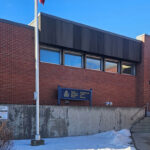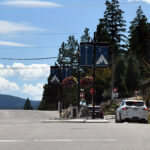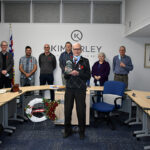Home »

Descriptive excellence central in Midnight Angels
Book Review
By Derryll White
Carcaterra, Lorenzo (2010). Midnight Angels.
“I saw the angel in the marble and carved until I set him free.”
Michelangelo Buonarrati
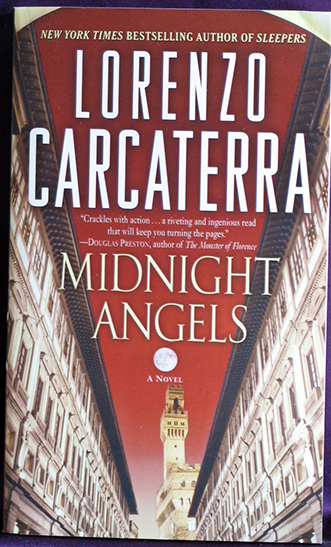 This novel is advertised as a “religious artifact quest thriller” – shades of Dan Brown’s ‘The Da Vinci Code’ I suppose. The setting is Florence, Italy, perhaps one of that nation’s most artful Renaissance cities. It is the capital city of the region of Tuscany and is considered the birthplace of the Renaissance. It was ruled at one time by the powerful Medici family, patrons to the fabulous artist Michelangelo, sculptor of the iconic David statue. Leonardo da Vinci, Boticelli, Giotto and Michelangelo are only a few of the famous artists that called Florence, “the Athens of the Middle Ages,” home.
This novel is advertised as a “religious artifact quest thriller” – shades of Dan Brown’s ‘The Da Vinci Code’ I suppose. The setting is Florence, Italy, perhaps one of that nation’s most artful Renaissance cities. It is the capital city of the region of Tuscany and is considered the birthplace of the Renaissance. It was ruled at one time by the powerful Medici family, patrons to the fabulous artist Michelangelo, sculptor of the iconic David statue. Leonardo da Vinci, Boticelli, Giotto and Michelangelo are only a few of the famous artists that called Florence, “the Athens of the Middle Ages,” home.
The novel orbits around the achievements of Michelangelo and his presence in the city. Many consider him to be the greatest living artist in his own lifetime and still hold him to be one of the greatest artists of all time. Art historians suggest that 30% of his work is still unknown, and around this fact the novel builds a somewhat artificial conflict.
There is lots of violence, unbelievable for the most part. There is an interesting amount of art history and political intrigue from the world of galleries and museums. But, for the most part, it is a story of chasing through the streets of Florence, and would be absolutely boring were it not for the knowledge of the city that Carcaterra brings out with descriptive excellence.
I found it hard to stay with the novel, and ended up completing it as a preparatory read in case I ever fulfill a desire I have to go to Tuscany. I would not recommend this book to anyone who is not interested in art history or the magnificent cities of Italy.
********
Excerpts from the novel
UNIVERSITY – Professor Edwards loved the serenity of campus life, a safe bubble from the risks of the world that lay beyond the brick-lined campus entrance. Here, life could be dissected and discussed without fear of reprisals, and answers to even the most complex questions could be found – at least within the context of a spirited discussion. An environment dedicated to breaking down the lessons of the past and applying them to the problems of the present.
FLORENCE – Rumore always thought of Florence as the perfect city in which to be a tourist. Due to its size and the attitude of its residents it lacked the frenzied pace of cities like New York or Paris, allowing a visitor a relaxed chance to devour all that the town had to offer – from its vast trove of Renaissance works to the finest in current fashion to the best in Tuscan cuisine. It was also a small city, and therefore easy to manage by foot.
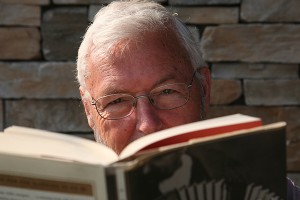 – Derryll White once wrote books but now chooses to read and write about them. When not reading he writes history for the web at www.basininstitute.org.
– Derryll White once wrote books but now chooses to read and write about them. When not reading he writes history for the web at www.basininstitute.org.

